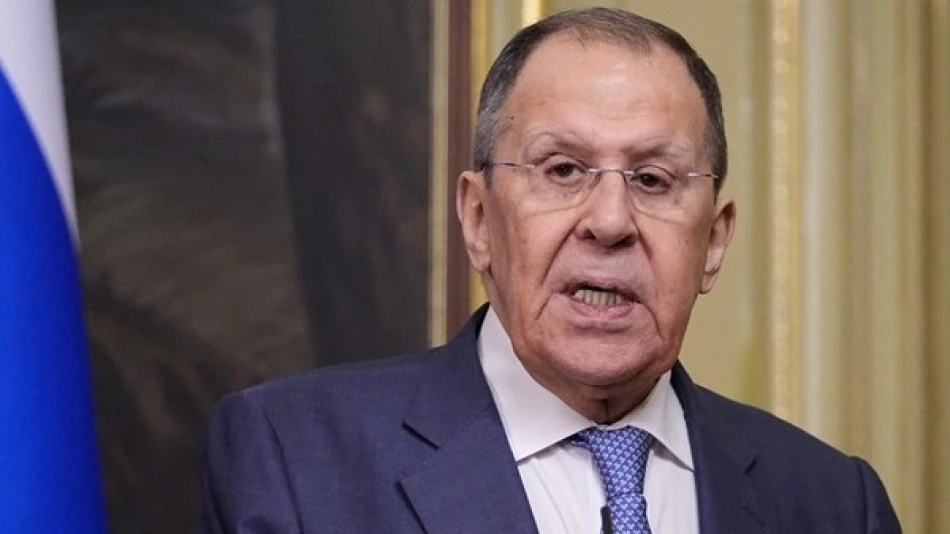
Russian Foreign Minister Meets Chinese President in Beijing Amid Geopolitical Tensions
Putin and Xi Strengthen Ties as Russia Doubles Down on Eastern Pivot
Russian Foreign Minister Sergey Lavrov met with Chinese President Xi Jinping in Beijing on Tuesday, delivering personal greetings from Vladimir Putin and finalizing arrangements for the Russian leader's upcoming visit to China. The high-level diplomatic engagement underscores Moscow's accelerated pivot toward Asia as Western sanctions continue to reshape global alliances.
Strategic Timing Behind the Moscow-Beijing Embrace
Lavrov's visit comes at a critical juncture for Russian foreign policy. With Europe increasingly closed off due to the Ukraine conflict, Moscow is systematically deepening its relationship with Beijing through multilateral frameworks like the Shanghai Cooperation Organization (SCO). The foreign minister is currently in China for the SCO foreign ministers' meeting, using the platform to advance bilateral ties beyond the official agenda.
According to Russia's Foreign Ministry, the discussions covered "bilateral political communications" and logistical preparations for Putin's planned visit to China. This represents more than routine diplomacy—it signals Russia's commitment to repositioning itself within an alternative international order centered on non-Western powers.
Putin's China Visit: More Than Ceremonial Diplomacy
The Russian president's upcoming trip will serve multiple strategic purposes. Beyond attending the SCO summit and holding bilateral talks with Xi, Putin will participate in ceremonies marking the anniversary of Japan's defeat in World War II on September 3rd—a symbolically charged event that reinforces shared historical narratives between Moscow and Beijing.
Historical Context and Modern Implications
This commemoration carries particular weight given current geopolitical tensions. Both Russia and China view the post-1945 international order differently than Western powers, and joint remembrance of their World War II alliance serves to legitimize their current partnership as a continuation of historical cooperation against common adversaries.
The SCO as Russia's Diplomatic Lifeline
The Shanghai Cooperation Organization has evolved from a regional security forum into Russia's primary vehicle for maintaining international relevance outside the Western sphere. Originally founded in 2001, the SCO now includes major powers like India and Pakistan alongside founding members Russia, China, and Central Asian states.
For Moscow, the organization provides crucial diplomatic cover and economic alternatives as traditional partnerships with Europe deteriorate. The current foreign ministers' meeting allows Russia to demonstrate it remains a significant player in Asian security architecture, despite its isolation from Western institutions.
Economic Undercurrents of the Russia-China Alignment
While the official statements focus on political cooperation, the economic dimension of Russia-China ties continues expanding rapidly. Chinese imports of Russian energy have surged since 2022, while bilateral trade increasingly occurs in national currencies rather than dollars. This economic integration provides both countries with greater autonomy from Western financial systems.
The personal diplomacy between Putin and Xi, facilitated by meetings like Lavrov's current visit, helps coordinate this economic pivot while managing potential friction points between two historically competitive powers.
Implications for Global Power Dynamics
The intensifying Russia-China partnership represents a fundamental shift in global alignments not seen since the Cold War era. Unlike the ideological Soviet-Chinese alliance of the 1950s, today's cooperation is driven by pragmatic opposition to Western hegemony rather than shared communist ideology.
This realignment forces other major powers to recalculate their strategies. European nations face the reality of a long-term Russian orientation toward Asia, while the United States confronts the challenge of a consolidated Eurasian bloc that could reshape international institutions and economic flows.
As Putin prepares for his China visit, the world watches whether this partnership will prove durable enough to create a lasting alternative to Western-dominated international order, or whether national interests will ultimately limit the scope of Moscow-Beijing cooperation.
Most Viewed News

 Layla Al Mansoori
Layla Al Mansoori






